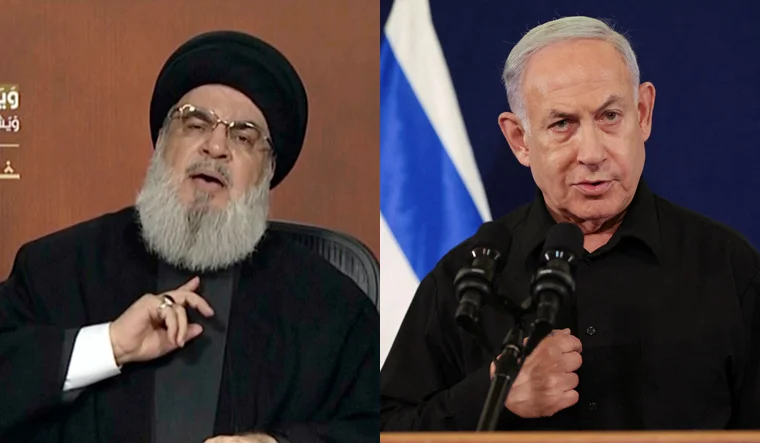Former British Deputy Prime Minister John Prescott Passes Away Peacefully at 86

John Prescott, former deputy prime minister and a prominent figure in British politics, dies peacefully in his sleep at the age of 86. Prescott was widely known for his steadfast principles of social justice and an ethical approach towards public service.
He devoted his whole life in public service for several decades. In the last years of his life, he was diagnosed with Alzheimer’s, however, he passed on with his loved ones around and with the background sound of good old Jazz music, showing how he lived his life full of zeal and purpose.
| Attribute | Details |
|---|---|
| Full Name | John Leslie Prescott |
| Born | May 31, 1938, Prestatyn, Wales |
| Died | November 21, 2024, at age 86 |
| Political Party | Labour Party |
| Position Held | Deputy Prime Minister (1997–2007) |
| Notable Policies | Kyoto Protocol, Transport, Regional Governance |
Early Life and Path to Politics
Humble Beginnings
John Prescott born in 1938 in Prestatyn, Wales, was the child of a railway signalman. He left schooling at the age of 15 and started his career as a sous chef and after that worked as a steward on Cunard ships. His formative experiences helped to cultivate strong working-class values in him, which later became the hallmark of his political journey.
From Trade Union Activist to Labour MP
John Prescott’s foray into politics, like most feminists, began with crusading for trade unions. In 1970 he became the Labour MP for Hull and held the position for over forty years. His turn to activism was his foundation for the prominent role later, where he was a British former deputy prime minister fighting for traditional Labour values.
| Year | Event |
|---|---|
| 1938 | Born in Prestatyn, Wales |
| 1970 | Elected Labour MP for Hull |
| 1997 | Appointed Deputy Prime Minister |
| 2001 | Famous egg-punching incident |
| 2007 | Retired as Deputy Prime Minister |
| 2019 | Suffered a stroke |
| 2024 | Passed away peacefully |
Role in New Labour and Deputy Prime Minister Tenure
Championing Labour’s Traditional Values
Occupying the office of deputy prime minister under Tony Blair from 1997 to 2007, John Prescott acted in a way that connected the leadership of Labour in the time of modernization with its roots in the working class. He played a vital role in helping the party to maintain its integrity and resolve the fight between Tony Blair and Gordon Brown. This intense loyalty of working-class people made him a figure that people appreciated in times of political softening.
Policy Contributions
While in office, Prescott played a defining role in developing the policies associated with the environment, transportation, and to some degree regional administration. He co-hosted the negotiating group leading to the adoption of the Kyoto Accord on June 11, 1997, which demonstrated his active interest in these issues as well as the importance of international efforts.
| Policy Area | Key Contributions |
|---|---|
| Climate Change | Negotiated Kyoto Protocol, advocating sustainability. |
| Transport | Overhauled transport policies to improve public systems. |
| Regional Governance | Championed decentralization and local governance. |
| Labour Party Unity | Mediated disputes between Tony Blair and Gordon Brown. |
Notable Incidents
One more dimension of John Prescott’s public persona was his large amount of rage and a straightforward attitude. Arguably, one of the most shocking episodes within his career was in the course of 2001 election campaign, which Prescott exercised on a protester, who had jumped out and egged him and subsequently ducked and covered. This incident, perhaps controversially, encapsulated his style and attitude towards public life.
Legacy and Tributes
A Titan of UK Politics
There was a wave of condolences from the political divides alike after the news of John Prescott’s demise. Tony Blair famously referred to him as “larger than life”, appreciating him for his intellect and devotion which he argued to have found none other.
According to Blair, he was the complete architect of the Labour party’s unprecedented three successive general elections, “He is irreplaceable.”
Gordon Brown also shared the same feelings, telling of a man he referred to as a “working-class hero”, as well as a “gentleman” who helped build Britain as it is today.
Cross-Party Respect
Even political opponents admired Prescott. Former Conservative leader William Hague appreciated his pinpoint debating skills and his capacity to reach out to the people. The former vice president of the United States A. Gore, extolled him for his commitment to climate change custody and the implementation of the Kyoto Protocol.
Personal Reflection
Prescott’s family remembered him as a great family man and a great public worker. Carrying the flag for Hull, they stated, was the biggest trophy for him in relation to the decades he worked towards bettering the lives of the common people.
Final Years and Health Challenges
Towards the end of his life, John Prescott battled a number of medical conditions, including a stroke he suffered in 2019 and later developed Alzheimer’s disease. Apart from that, he retreated from society as he finally quit the House of Lords in 2024. He was a true embodiment of a focus on overcoming all odds and serving humankind.
Conclusion
The former British Deputy PM, John Prescott, will be remembered as one of the few leaders who managed to break the glass ceiling and advocate for the working class. His stubbornness in principled issues, sense of humour, and love of being at the centre stage were characteristics that most people, especially in British politics, could not easily forget about. His demise will certainly be mourned across England.
FAQs
1. Who was John Prescott?
John Prescott was a British former deputy PM and a prominent Labour Party figure, serving under Tony Blair from 1997 to 2007.
2. What were John Prescott’s key contributions?
He championed Labour’s traditional values, mediated between Tony Blair and Gordon Brown, and contributed to policies on climate change, transport, and regional development.
3. How did John Prescott pass away?
John Prescott passed away peacefully at the age of 86, surrounded by his family and jazz music, after battling Alzheimer’s in his later years.
4. What is John Prescott’s legacy?
Prescott is remembered as a working-class hero who fought for social justice and environmental progress, leaving a lasting impact on UK politics.
5. What was the Kyoto Protocol’s connection to John Prescott?
As deputy prime minister, Prescott played a vital role in negotiating the Kyoto Protocol on climate change in 1997, demonstrating his commitment to global environmental efforts.
LATEST NEWS
DISCOVER MORE






